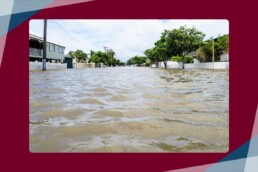Flood Zone and Flood Insurance Myths, Debunked
Floods pose an immense danger to both people and property no matter what the situation is. This is not only evident in low-lying areas where you have a lot of rain. The same amount of risk can occur in other locations.
Nature comes out with unpredictable factors with each passing day. To the point that even an area with enough elevation can face the dangers of flash floods. Because of this, you cannot deny the importance of flood insurance and knowing about the area’s flood zone.
However, there are many myths and misconceptions abound regarding these essential plans. Today, we will look at these supposed myths and bring out the facts to help you understand flood insurance and more.
Flood Insurance Is For Homes in High-Risk Areas
You need to buy flood insurance for your home if you happen to be in a high-risk area or a flood zone. However, that shouldn’t stop you from getting flood insurance, regardless.
Even if your home is not in a high-risk area, it would be best to get flood insurance. More than 20% of flood insurance claims come from properties not in high-risk flood zones. With that in mind, err towards caution and get one.
If your community participates in the National Flood Insurance Program, buying flood insurance is the right choice for this matter, even when your home is not in a high-risk zone. If your community does not take part in the NFIP, you can still buy a flood policy from a private insurance company.
Flood Insurance Covered by Home Insurance Policy
One would think that home insurance policies have wide coverage. People think that it is so wide that it covers everything.
Homeowner’s insurance indeed covers losses and damages to your house and assets. One must remember that floods are among the exclusions for standard insurance policies. This is a good reason why you should get a flood insurance policy.
Flood damage is something you cannot underestimate. Even with a minor flood, it can still pose problems to your property. While home insurance would note such damages to be beyond their scope, flood insurance would have these damages to be within their parameters.
Flood Insurance Covers All Damage
Flood insurance covers damages beyond a typical home insurance policy. Even so, there are areas that go beyond what flood insurance covers. These come with limits, as any insurance policy would.
The standard flood insurance policy can provide up to $250,000 in building coverage. This amount can cover a single-family home or a condo unit. For belongings, the policy can provide up to $100,000.
You can opt-in for both when purchasing a flood insurance policy. This gives you the option to pick either of these two, or you can get both of them.
Commercial property owners can purchase flood insurance policies with higher coverage limits. The usual would reach up to $500,000.
This applies to the building coverage. The coverage for contents can also reach up to this amount.
Only Homeowners Can Buy Flood Insurance
There is this misconception that the ones that qualify for flood insurance are homeowners. On the contrary, flood insurance is also available for renters and for commercial property owners who wish to protect the structure of their businesses. They can also protect the contents with the use of flood insurance.
The previous point shows how much is within the limits of the flood insurance policy. The notable difference is that commercial property owners need more to cover the assets they have.
This answers a glaring question. Who needs flood insurance coverage? To this, it shows that everyone needs it.
Rainy Season Is the Best Time to Buy Flood Insurance
You might be wondering at this point, when would be the best time to buy a flood insurance policy? If your answer is to wait until the rainy season, then that would be a little too late.
The best approach for this is to take a more proactive angle.
In most cases, you have a 30-day waiting period before the flood insurance policy takes effect. When the rainy season hits, it might be too late as the insurance plan might not yet be in motion during that time. Best that you do this early while conditions are still dry.
This way, you have the assurance that your insurance policy is up and running. When flood damage comes about and it hits your home, you have your flood insurance covering the damages.
Government Assistance Would Pay for Repairs
In the case of natural disasters such as floods, there are situations when the government releases its federal disaster funds. They provide these funds to flood victims to help them rebuild. However, the condition for this to occur is when the president declares a disaster.
A typical federal disaster relief grant is around $5,000 in the form of a low-interest loan. This loan, as you would notice, will need to be repaid.
Due to this reason, it would still serve you well to have a flood insurance plan. It provides more coverage and it does not require you to repay it. Instead, it helps you recover due to the scope of the insurance policy’s coverage.
There are few instances when floods get declared as federal disasters. This makes the federal disaster relief fund unavailable. Save for the time when the declaration of a federal disaster comes up.
Secure Your Home in a Flood Zone With Insurance
Insure your home while you reside in a flood zone. This way, you know you got yourself covered in the face of disaster, giving yourself a chance to recover at the onset of the aftermath.
This is where your insurance provider comes in to help. For this, we can help you protect your home and your livelihood with our insurance policies, tailor-fitted to your situation. To know more about how to get started, contact us today.
Related Articles
Homeowners Insurance in NJ: A Comprehensive Guide
Key Takeaways Homeowners insurance in NJ protects your home, personal property, and liability, making it essential for safeguarding your investment. Annual…
What You Need to Know About Flood Insurance in NJ
Key Takeaways Flood insurance is essential for New Jersey homeowners, even those outside high-risk zones, as flooding can occur anywhere from various sources…


